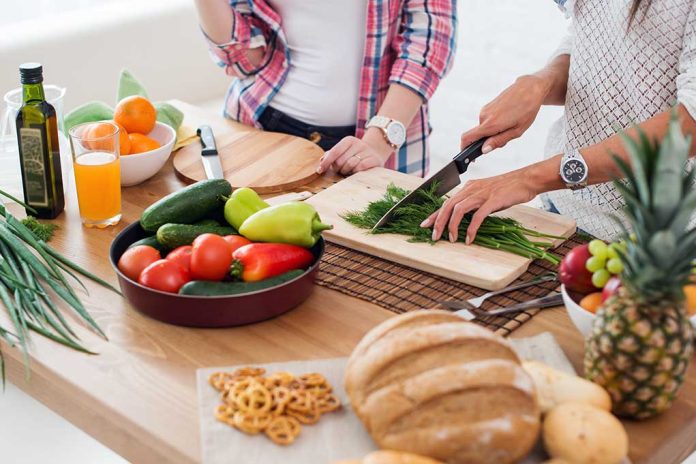
Rob Hobson’s journey to reduce ultra-processed foods from his diet led to a balanced approach that might surprise you.
At a Glance
- Nutritionist Rob Hobson initially aimed to eliminate ultra-processed foods (UPFs) but found balance was more practical.
- UPFs have been linked to numerous health issues, including diabetes and cancer.
- Incorporating convenient yet healthier UPFs, Hobson emphasizes ingredient scrutiny.
- UPFs comprise a significant portion of American diets, sparking health concerns.
Reevaluating Ultra-Processed Foods
Rob Hobson, a nutritionist from the UK, embarked on a rigorous mission to eliminate ultra-processed foods (UPFs) from his diet, initially driven by the association of UPFs with diseases like cancer and diabetes. Over the year, however, his strategy evolved. Hobson now embraces a more realistic and balanced approach, accepting that certain UPFs can offer convenience and occasional nutritional benefits.
Research underscores the health risks linked to UPFs, with studies associating their consumption to conditions such as cardiovascular disease, obesity, and depression. These foods often appear enticing due to marketing, shelf life, and their palatable nature. Notably, UPFs account for 58% of adults’ caloric intake in America.
Tips for parents to reduce ultra-processed foods in kids' diets https://t.co/HeIRTyhFJV #FoxNews
— Ilana Muhlstein, M.S, R.D.N. (@ilanamuhlstein) October 5, 2024
Understanding UPFs and Their Health Impacts
UPFs are categorized by industrial processing methods and ingredients not typically used at home, including additives and preservatives, according to the NOVA classification. Observational studies consistently link UPFs to various health conditions, emphasizing the need for extensive study to confirm causation. Understanding these biological mechanisms is crucial for advancing dietary solutions. Rob Hobson advises not to abandon all UPFs, but to scrutinize ingredients for healthier options.
“You cannot throw the baby out with the bathwater and decide that you’re going to just dump everything” that’s ultraprocessed” – Ciarán Forde
Some researchers suggest reformulating these foods to enhance nutritional profiles while maintaining convenience. Hobson aligns with these views, recommending minimal processing or focusing on purchasing high-quality UPFs when necessary.
Rob Hobson’s Journey and Advice
While Hobson initially approached his diet like a “vigilante”, eliminating all UPFs was unsustainable in modern life. He advises a diet rich in whole foods, supplemented by the occasional UPF for convenience. For Hobson, cooking from scratch remains pivotal, yet he doesn’t shy away from quality pre-made options like sauces when pressed for time. This pragmatic approach aligns with the broader 80/20 principle promoting balance.
“You cannot throw the baby out with the bathwater and decide that you’re going to just dump everything” that’s ultraprocessed” – Ciarán Forde
Hobson’s evolving dietary journey emphasizes balance, convenience, and health. His insights encourage mindful eating habits that cater to modern lifestyles without neglecting nutritional value.
Sources
1. What can we do about ultraprocessed foods?
2. A nutritionist who cut down on UPFs shares 3 lessons he learned after a year




